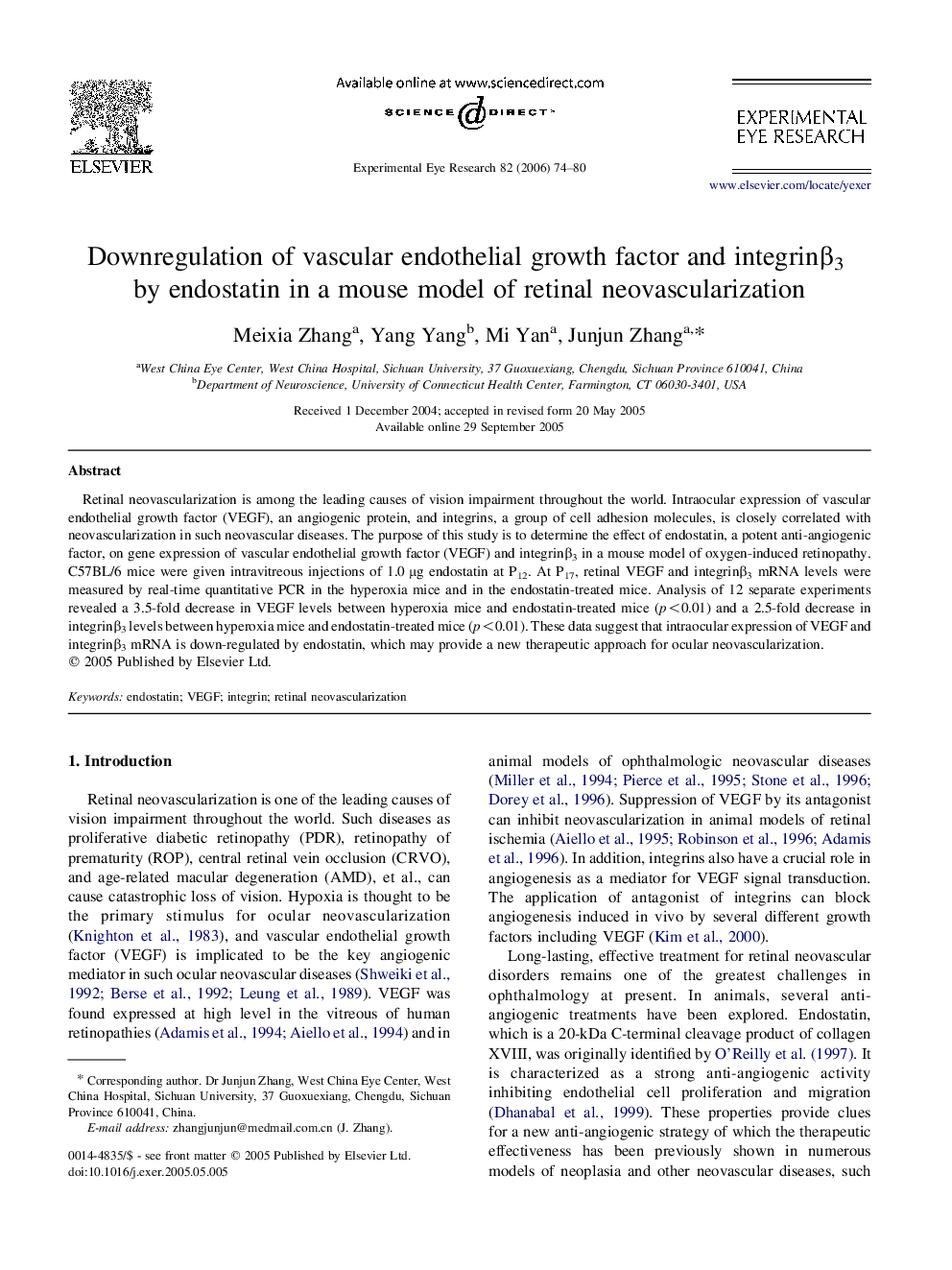| Article ID | Journal | Published Year | Pages | File Type |
|---|---|---|---|---|
| 4012744 | Experimental Eye Research | 2006 | 7 Pages |
Retinal neovascularization is among the leading causes of vision impairment throughout the world. Intraocular expression of vascular endothelial growth factor (VEGF), an angiogenic protein, and integrins, a group of cell adhesion molecules, is closely correlated with neovascularization in such neovascular diseases. The purpose of this study is to determine the effect of endostatin, a potent anti-angiogenic factor, on gene expression of vascular endothelial growth factor (VEGF) and integrinβ3 in a mouse model of oxygen-induced retinopathy. C57BL/6 mice were given intravitreous injections of 1.0 μg endostatin at P12. At P17, retinal VEGF and integrinβ3 mRNA levels were measured by real-time quantitative PCR in the hyperoxia mice and in the endostatin-treated mice. Analysis of 12 separate experiments revealed a 3.5-fold decrease in VEGF levels between hyperoxia mice and endostatin-treated mice (p<0.01) and a 2.5-fold decrease in integrinβ3 levels between hyperoxia mice and endostatin-treated mice (p<0.01). These data suggest that intraocular expression of VEGF and integrinβ3 mRNA is down-regulated by endostatin, which may provide a new therapeutic approach for ocular neovascularization.
